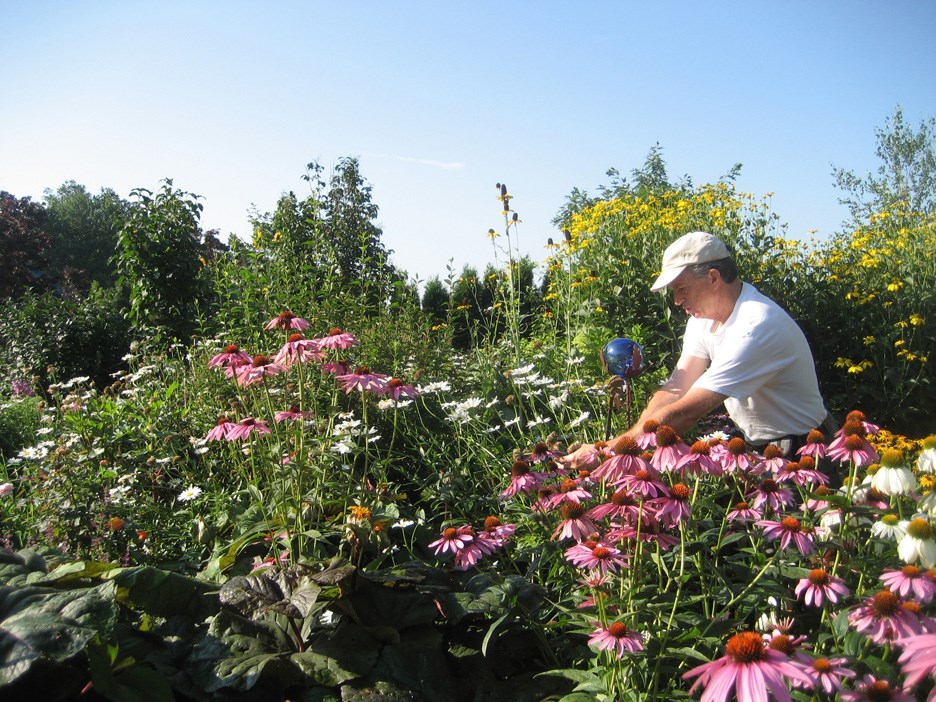Do you hear that? It is the sound of Canadian gardeners celebrating the beginning of a new gardening season.
More than 80% of Canadians claim to engage in the world of plants somehow. That makes gardening the most popular outdoor leisure activity.
Many of us are gearing up for a spectacular season, after a long, cold winter.
Often our dreams of a great garden aren’t realized. Beginner gardeners always enter a new season with a warped sense of reality. Experienced gardeners – even Mark – can get carried away with plans for a garden that are not likely to materialize as imagined.
We take this moment to breathe deeply, and help you manage your expectations:
- There will be failures. We are not talking about catastrophic let downs, but the experiences that teach us something by their occurrence. A gardener who has never failed has failed to take necessary risks. Gardeners learn best by their failures. It is liberating to fail in the garden as it is essentially harmless. The consequences of failure in many other parts of our lives can be difficult to bear, but a plant that didn’t grow is not failure. It is a composting opportunity. Be prepared to fail. Embrace it.
- There will be triumphs. And you will not see them coming. You might grow the largest or earliest tomato on the block, but don’t count on it. There are too many factors that will influence your success, like weather, insects, disease and did we mention weather? It is best not to begin the season with expectations of success. Much better to take it when it arrives and be surprised. A monarch caterpillar spins a cocoon on your milkweed, a hummingbird buzzes in your ear in the quiet of some morning while you are weeding or the zucchini that you planted over produces, providing an opportunity for you to be a big shot ‘round town, giving away fresh produce like there is nothing to it. You become the zucchini champion. Relish in your successes.
- Nature has her own ideas. You have a plan for the best looking or most productive garden ever. We remind you that anything that occurs after you prepare the soil and plant has little to do with you. The gardener is merely a moderator. Mother Nature is in charge and if she wants to change your plan, she has the power to do it. The apples in Mark’s 30 tree orchard were hit by hail a couple of years ago. A picture-perfect crop became “seconds” in seconds. No matter. They tasted just as good and made great sauce.
- The #1 lesson is patience. Your garden is a classroom where you learn from your experiences. You can “want” your sunflowers to produce a bloom in June. Truth is, it takes at least 80 days for even the fastest sunflower seed to mature into a plant worth its keep. We plant bean and radish seeds with youngsters as they grow so fast. But even beans and radishes need a few weeks to perform. This is not like clicking on YouTube for a tutorial. Gardeners plan, prepare, plant, nurture and wait. That is our game. There is only one way to enjoy the satisfaction of winning and it takes patience.
- It is yours. Finally, a reminder that your garden is yours. If you allow your lawn and garden to simply be controlled by nature, you will be very disappointed. A study at Olds College in Alberta, proved that uncultivated land, left to the devices of nature produce over 75% non-native invasive weeds. Indeed, there is only one way to squeeze the joy of the gardening experience into the palm of your hand and that is to take to initiative to make it so.
Gardening is full of surprises. But most of them are fun and satisfying. A fiction writer could not imagine what you will experience this season in your own garden. Which is why you need to manage your own expectations of it.
Mark Cullen is an expert gardener, author, broadcaster, tree advocate and Member of the Order of Canada. His son Ben is a fourth-generation urban gardener and graduate of University of Guelph and Dalhousie University in Halifax. Follow them at markcullen.com, @markcullengardening, and on Facebook.



